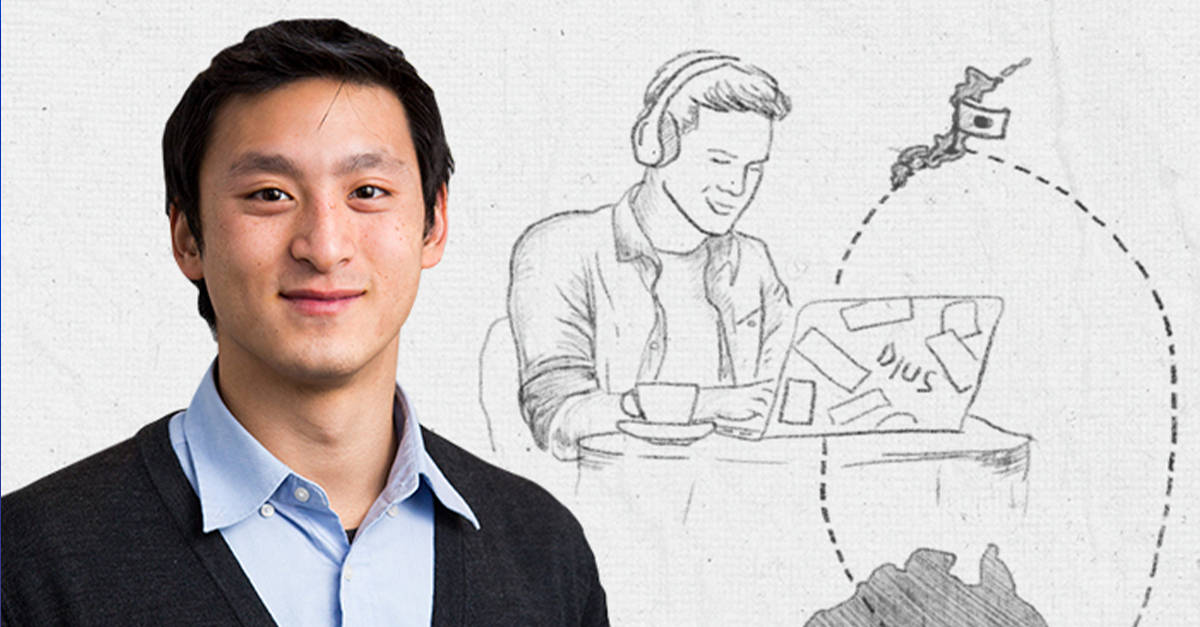Since his first coding experience, Albert has had a passion for programming. In high school he could be found trying to outcompete his friends at who could ‘program’ the most outrageous artworks. A little later he was exposed to the magic of automation, learning how to use Filemaker and spending his days perfecting macros so he could calculate the age and display the year level of a student.
For Albert, software development has always been about solving problems; something that he continues to be passionate about. Always looking for new ways to make things more efficient, Albert believes that if you are doing something repeatedly, it’s time to systemise, and refine it – leaving him more time to work on projects he is passionate about.
What inspired you to progress a career as a software developer?
Software is a fascinating and sometimes, a little frustrating industry. Things are so fast paced, there’s always new things to learn, and even if you have come up with a solution, there are always ways to make it better. The internet, and a lot of the internet based services we interact with on a daily basis, Twitter, Facebook, Spotify, Netflix, are really complicated. However, when we interact with them, they are almost seamless, with all of those ‘wires’ and ‘complexities’ hidden behind beautifully designed User Interfaces. A lot of this is thanks to developers, engineers and designers. I like to be behind the scenes and always learning new things so software seemed to be a very logical conclusion.
What are you most passionate about?
I am extremely passionate about startups. In particular, tech startups. With the widespread adoption of the Internet, it has really leveled the playing field. Finding other people who share the same problem as you, and thus, would appreciate the solutions you (or the startup) have come up with has become so much easier. Many of the biggest companies coming out of this generation own no physical assets, but simply create a platform to enable others to repurpose their existing assets. Such as Uber, the world’s biggest taxi company doesn’t own a single taxi; AirBnB doesn’t own a single house; and Etsy doesn’t own a factory… the list goes on.
What has been the most exciting project that you have worked on so far since joining DiUS?
Since joining the company, I have worked on two projects. It wouldn’t be fair to compare them since they are very different. I think the team at DiUS is very proactive about finding interesting projects, and some of the ones I see other consultants working on, scientific image processing, systemising valet parking, helping petrol stations manage fuel loss – they are all really interesting and definitely expose me to fields that I wouldn’t otherwise think about.
Are you working on any personal projects at the moment?
Not at the moment, I maintain a blog that I sporadically update and I have wireframes and models, and pseudo code for some games I want to make.
Do you prefer to work with any specific languages or tools?
There are definitely tools and specific languages I am more familiar with and thus, I am more productive with. I like Ruby on Rails because of the mature ecosystem, well defined best practices and an active community. Code is actively shared through ‘gems’, which means that you don’t have to reinvent the wheel each time you need one. Recently, I’ve been doing a lot more work with front-end frameworks such as React/Redux and I can definitely see the benefits in terms of utilising end users’ devices (phones, tablets, computers) to do some of the work instead of having it all done server side.
Joining the team in Melbourne a little under two years ago, last year Albert decided to move to Japan. Here he gives us some insight into what it’s like to work remotely, all the way from Tokyo.
What is it like to work remotely?
Working remotely is great, but it does come with its own set of challenges. The obvious benefit is being able to work from wherever I want, as long as the internet is good. Being able to dictate where I work from saves me a lot of time logistically, but it does also require some planning. I’ve worked from cafes before and in those situations, having a good set of earphones is paramount. I usually have Skype video calls on during the work day, which acts as a window, allowing me to participate in day to day conversations. I believe that working in the same time zone as the client is pretty important, this means that I adjust my lifestyle to always work in Australian Eastern Standard Time. The thing with programming is that sometimes it’s a process, it’s not going to be a feature a day, there are times where I’ve spent a day writing and un-writing lines of code to eventually end up at a suitable solution and so it takes a level of trust from the team to know that I am actually working.

Photo: Working from here (a temple close to home in Tokyo), there and everywhere.
Have you had to adjust the way you work?
The adjustments have been small and organic, if there’s a problem, we simply discuss it as a team, figure out a way that works, and make small corrections as we go.
What do you enjoy most about working remotely?
I enjoy the flexibility. The time I start and finish doesn’t change, the work I do doesn’t change, but I can pick the environment I work in – whether it’s an office, a co-working space, my own house, a cafe. I can choose to suit my mood for the day.
We’re looking for passionate software engineers to join our team. Apply here.

